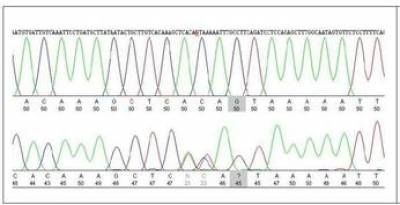
Group members
Professor John Hardy - Principal Investigator
Dr Kin Mok - Post-doctoral Research Associate
Background
DS is a chromosomal genetic disorder, so our understanding of the causal dosage-sensitive genes on chromosome 21, and of modifier genes elsewhere in the genome, would be enhanced by genome wide association studies (GWAS).
However, these depend on large collections of well-characterised cohorts of individuals and such biobanks do not currently exist for DS. This is for two main reasons: firstly, practical issues such as consent, and secondly, the relative lack of interest in DS, judged an intractable problem. However, DS is now seen as potentially treatable and we know from mouse studies that we can identify individual predisposing dosage-sensitive genes. Thus a small number of researchers globally - including our group - are tackling the issues to create DS biobanks for GWAS and other studies, with support of the DS community.
The greater the number of freely available well-characterised samples, the greater our power to detect predisposing genetic variants. In the LonDownS consortium, we will create a biobank of DNAs and cell lines, and work to identify predisposing genes, to analyse the genetics and cell biology of DS cognition across age groups. We will also assess the genome integrity of DNA isolated from hiPSC lines from selected DS individuals, in order to identify (and associate in the database) any rearrangements that might have occurred as a result of the hiPSC re-programming procedure, compared to the SNP genotypes of the same patient's primary DNA sample.

What we will do
Genotyping on Illumina genotyping arrays will allow us to assess the association of all common variants with any specific phenotype. It will also allow us to identify those rare but informative DS cases with partial trisomies. We will firstly assess those SNPs we and others have shown to be important for AD, with the onset of cognitive decline in DS70 - in analogy to our previous studies of APOE and dementia in DS71 .
However, genetic analysis of this type is digital and can be added between groups, hence the importance of our integration with international efforts in DS cognition. In this regard, we have recently genotyped ~200 Down syndrome cases from a clinical trial (Collaborator Clive Ballard) and from autopsy DS cases with pathological investigation from the UK Brain Banks. These data are currently being analysed (Hardy, Ballard and Williams). We already have collaborators and SAB members from other groups building large DS cohorts (Ballard, Coppus, Holland, Nadel, Mobley, Dierssen). We have taken a similar approach successfully with other conditions e.g. Parkinson's disease (PD). In PD (and similarly in MND, PSP, FTD and AD), initially underpowered studies have led to larger and larger sample series being garnered and increasing amounts of risk allele discovery.
Our collaboration includes functional genomics for analysis of chromosome
21 gene function in both human and mouse genetic phenotype screens.
For more information about the work of the genetics group, see our paper showing an association of alleles in the genes PICALM and APOE with age of onset of dementia in people with Down syndrome (pdf).
 Close
Close

